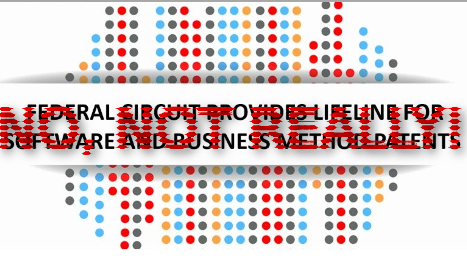

"The EFF and others stepped in with formal input on Berkheimer. They wrote to the court."Some days ago we wrote about law firms 'pulling a Berkheimer', i.e. selectively citing a case or two in an effort to convince clients to still pursue software patents. The EFF and others stepped in with formal input on Berkheimer. They wrote to the court. So did HP, seeking to overturn/reverse Berkheimer. Michael Borella, who writes for a patent maximalists' site, wrote about it at the start of the week (he covers Berkheimer's side, not HP's). HP is now in a position to further cement the de facto ban on software patents.
Sure, the court overturned PTAB in spite of dissenting judges (like those whom the patent microcosm insulted racially), but there's still room for appeal. To quote Borella:
In early February, the Federal Circuit published an opinion in HP Inc. v. Berkheimer stating clearly –- for the first time -- that patent-eligibility under 35 U.S.C. €§ 101 should be determined as a matter of law, but with possible underlying factual issues. While supported in principle by Supreme Court and previous Federal Circuit decisions, neither body had unambiguously stated that facts matter in eligibility disputes. Thus, this ruling has the potential to fundamentally shift how the €§ 101 inquiry is carried out.
Berkheimer's U.S. Patent No. 7,447,713 is directed to "digitally processing and archiving files in a digital asset management system." This system "parses files into multiple objects and tags the objects to create relationships between them," then compares these objects to "to archived objects to determine whether variations exist based on predetermined standards and rules." Doing so "eliminates redundant storage of common text and graphical elements, which improves system operating efficiency and reduces storage costs."
"They merely get rid of bogus patents. And they're not rights, they're monopolies."Dennis Crouch meanwhile takes note of a decision/opinion more than a week old, stating: "In its March 23 opinion, the Federal Circuit reversed two USPTO IPR decisions favoring the patent challenger — holding that “the Board did not provide a sufficient explanation for its conclusions” of obviousness. [...] the Federal Circuit found that the PTAB had not shown its case — its conclusions lacked evidentiary support."
This is basically the latest bubble or hype on which the patent maximalists rely. Another one that we saw yesterday came from the patent trolls' lobby (IAM). Only a site like IAM, which fronts for patent trolls and serial litigators, would come up with a headline (yesterday) which says US patent "litigation remains depressed" (seriously, they said "depressed").
That's like saying "war remains depressed" and this is generally their message on an Easter Monday. That "litigation remains depressed"...
"The world is moving on and with Oil States in the pipeline we expect a lot of the Berkheimer hype (or PTAB bashing) to stop as well."Maybe it's just them who are depressed, knowing that their funding sources may soon run dry. In addition to Alice there's also TC Heartland, which makes litigation a lot harder for serial bullies.
Yesterday, the Docket Navigator cited Whirlpool Corporation v TST Water, LLC, 2-15-cv-01528 (dated March 29th). It's a decision from Rodney Gilstrap, whom politicians called "reprehensible". He continues to signal that patent trolls and aggressors ought to come to the Eastern District of Texas for patent extortion, but few of them can come there for such favourable rulings. The latest:
Following a jury verdict of willful infringement, the court granted in part plaintiff's motion for enhanced damages because defendant's copying, lack of a good faith belief in noninfringement/invalidity, lack of closeness of the case, duration of misconduct, lack of remedial action, and motivation for harm favored an enhancement of $3.8 million on a $7.6 million award.